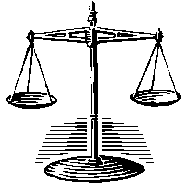 utledge
utledgeEdward R utledge
utledge
By trade a lawyer, in Congress Rutledge won a seat.
And though cautious by nature, he worked for Britain's defeat.
Edward Rutledge was an Anglican and has been identified as a member of the Church of England by the 1995 Information Please Almanac. Ian Dorion, "Table of the Religious Affiliations of American Founders," 1997.
Out of seven children, Edward was the youngest son of Sarah Hert and Doctor John Rutledge, who emigrated from Ireland to South Carolina about 1735. Educated in law at Oxford, he and his eldest brother John were both engaged in the law; and both attended Congress.
He took leave of Congress in November of 1776 to join the defense of his colony, becoming a member of the Charleston Battalion of Artillery to attain the rank of Captain. He was sent back to Congress in 1779 to fill a vacancy; but he took leave again in 1780 when the British conducted a third invasion of South Carolina.Irish legend relates that the three clovers of the shamrock represent the Father, Son, and Holy Ghost.
Mr. Rutledge, as Captain in the defense of Charleston, was taken prisoner to St. Augustine for nearly a year before he was exchanged. He stayed in Philadelphia until a short time before the British evacuated Charleston; and then he was free to once again be amongst his friends and relations and to practice his profession.
In 1798, he was elected governor of South Carolina. He performed his duties admirably even though he was subject to severe attacks of gout until within a short time before his death in 1800. It should also be noted that Rutledge did whatever was in his power as legislator to stop the slave trade.
"Both in his public and private character, Mr. Rutledge was adorned with many virtues. In his disposition, he was uncommonly benevolent; he entered with great feeling into the sufferings of his fellow men, and felt it not only his duty, but his pleasure, to administer to their necessities. His deeds of kindness were many, were widely extended, and are still remembered with affection and gratitude." Rev. Goodrich Lives of the Signers to the Declaration of Independence.New York:William Reed & Co., 1856, Page 440.
Image above by Ole Erekson, Engraver, c1876, Library of Congress
http://www.adherents.com/people/pr/Edward_Rutledge.html http://www.sciway.net/hist/governors/erutledge.html
Cast thy burden upon the Lord, and he shall sustain thee: he shall never suffer the righteous to be moved.
Psalm 55:22
Southeast Texas Record | Legally Speaking- An Irish Legacy
THE VOLUNTEERS OF IRELAND
Success to the Shamrock, and all those who wear it;
Be honor their portion wherever they go:
May riches attend them, and stores of good claret,
For how to employ them sure none better know.
Every foe surveys them with terror,
But every silk petticoat wishes them nearer;
So Yankee keep off, or you'll soon learn your error,
For Paddy shall prostrate lay every foe.
This day, but the year I can't rightly determine,
St. Patrick the vipers did chase from the land;
Let's see if like him, we can't sweep off the vermin
Who dare 'gainst the sons of the shamrock to stand.
Hand in hand! Let's carol the chorus--
As long as the blessings of Ireland hang o'er us,
The crest of Rebellion shall tremble before us,
Like brothers, while thus we march hand in hand.
St. George and St. Patrick, St. Andrews, St. David,
Together may laugh at all Europe in arms.
Fair conquest her standard has o'er their heads waved,
And glory has on them conferred all the charms.
War's alarms to us are a pleasure,
Since honour our danger repays in full measure,
And all those who join us shall find we have leisure
To think of our sport even in war's alarms.
--Moore, Diary of the American Revolution